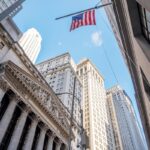SWIFT’s Chief Innovation Officer, Tom Zschach, has expressed skepticism about Ripple (XRP), especially in light of Ripple’s recent legal challenges. In a pointed response to a supporter of Ripple on LinkedIn, Zschach stated, “Surviving a lawsuit isn’t resilience. Neutral, shared governance is. Institutions don’t want to live on a competitor’s rails.” This remark underlines a fundamental difference in perspective regarding the future of digital payment systems.
Ripple has recently emerged from a complex legal battle with the United States Securities and Exchange Commission (SEC), which culminated in a $50 million settlement. Initially accused of selling XRP as unregistered securities, Ripple’s situation has shifted, leading to discussions about establishing XRP as a Strategic Crypto Reserve in the United States. Zschach’s critical comments seem to contrast with the emerging narrative that positions XRP as a valuable digital asset within the financial infrastructure.
During his commentary, Zschach emphasized the importance of the industry collectively agreeing on shared standards that no single balance sheet could control, highlighting his perspective on what constitutes true resilience in financial technology. This viewpoint emerges as Ripple prepares for further testing of its XRP Ledger in conjunction with SWIFT, particularly in adhering to the ISO 20022 compliance standards.
Despite facing heavy criticism, XRP remains one of the more widely used cryptocurrencies in the realm of cross-border payments. The digital asset recently peaked at an all-time high of $3.65, showcasing daily trading volumes of approximately $10 billion, reaffirming its position as a significant player in the payment landscape.
The comments made by Zschach have elicited strong reactions from the XRP community, who perceive his statements as an affront from a competitor within traditional finance. Ripple’s advocates argue that the token has demonstrated resilience against regulatory challenges and continues to gain institutional traction.
Additional context reveals the complexities of Ripple’s ongoing legal journey. The SEC’s lawsuit, initiated in 2020, alleged that Ripple had engaged in unregistered sales of XRP. A recent ruling dismissed claims regarding public exchange sales but imposed a fine of $125 million related to sales to institutional investors. Notably, Ripple chose to drop appeal efforts in August 2025.
This ongoing tension between Ripple and SWIFT raises questions about the future of cross-border payments. Ripple aims to directly compete with SWIFT’s established dominance, offering faster and more cost-effective settlement solutions. Zschach’s remarks could be interpreted as an indication of the amplified rivalry between these two entities.
Looking ahead, the legal clarity that Ripple has recently gained could potentially open up new avenues for XRP, including institutional partnerships and the exciting prospect of ETF approvals. Further testing of XRP’s capabilities within SWIFT will be underway in the fourth quarter of 2025, suggesting that the competition may intensify in the coming months.







